Trigger warnings: death, dying, murder, survival, mental health, horror, scary, stigma, grief, loss, psychosis
Some horror games have proven to be beneficial for mental health, although they’re still not thought of immediately that way. One study showed that survival horror games could increase emotional well-being, competency, and relatedness. Hell yeah, come at me scratched-mirror Michael Myers with your perks, and your stealth (“Jokes on you, I’m into that sh*t”)!
Games, similar to picking up a good book, help us flex our empathy muscle by literally putting us in another persons shoes for the length of the game play. Although some horror games have relied too heavily on stigmatizing views of mental disorder which increase misunderstanding of mental health struggles; we’re going to talk about a few that have had a positive affect and helped in decreasing the stigma.
There are plenty of games about humans experiencing trauma, LOTS of horror games about men losing their wife (whoopsies!) and going to find them (looking at you Silent Hill). This trope is overdone IMHO but can still definitely be worth a play. A game that recently came out that I found absolutely amazing and deals with inter-generational and community trauma was South of Midnight by Compulsion Games. Trailer below:
Another example of a game that gets it right is Ninja Theory’s 2017 Hellblade. It is a terrific example of a game that not only utilized the voices of the community they were pulling from (people with psychosis) it implemented this feedback throughout the process, tweaked what was inaccurate, and made sure the representation was there. The game has you experience playing as Senua, a warrior attempting to bring her love back from Helheim, the Norse afterlife. It’s often overwhelming and heartbreaking gameplay, which is by design. There is also a sequel, Senua’s Saga: Hellblade II that came out in 2024. I recommend playing both if you are in the headspace to do so.
Another type of horror game worth looking into are cooperation-type games, the most popular probably being Dead By Daylight (I will say this in Nemesis’ voice every time). You play with a team of other survivors (or as a killer) and if you don’t work together the game is much harder and you’ll probably ending up losing pretty quickly. There are the occasional trolls and the players who just don’t know what they’re doing, but it is an interesting take on communicating without text or voice chat. The friendly vs unfriendly ‘teabag’ (crouching up and down as the character) or even aligning yourself with the ‘friendly’ killer (this one is usually a Ghostface for whatever reason).
One of the scariest video games (which was actually a demo) is supposedly Kojima Production’s 2014 P.T. (Playable Teaser) which some people had the luxury of playing before it disappeared, never to reappear and is also a huge influence on many games coming after it with how the game progressed and provided it’s scares which was more more about atmosphere and much less about gore and the traditional jumpscares.
So why do people love and/or hate playing such games? Similar to watching horror movies, we get that spike of adrenaline and then some sweet, sweet, relief of things such as safe rooms, save points, or other forms of containment. Whenever I see ‘best played with headphones’ or a sneak/crouch button I have the urge to quit and also the exciting thrill of getting into it. I see a lot of my friends straight up pause a game and nope out when certain things make their heart rates jump. Wouldn’t it be nice if we could do that in real life too?
Some notable horror games include: Hellblade: Senua’s Sacrifice I and 2, South of Midnight, What Remains of Edith Finch, Little Misfortune, Signalis, Fran Bow, Dead By Daylight, Silent Hill, Resident Evil, Texas Chainsaw Massacre, Evil Dead, L4d2, Alan Wake, Emika Games
References:
Behavior Interactive. (2016). Dead by Daylight [Video game].
Compulsion Games. (2025). South of Midnight [Video Game]
Coyle, Natalie. “The Psychology of Horror Games.” Psychology and Video Games, 19 Nov. 2020, platinumparagon.info/psychology-of-horror-games/. Accessed 29 Apr. 2025.
Crawford, Stella. The Ways Hellblade: Senua’s Sacrifice Represents Mental Illness Faculty of Department of Game Design. Nov. 2019.
Fordham, Joseph, and Christopher Ball. “Framing Mental Health within Digital Games: An Exploratory Case Study of Hellblade.” JMIR Mental Health, vol. 6, no. 4, 18 Apr. 2019, p. e12432, https://doi.org/10.2196/12432.
Frohlich, David. “Mental Illness Portrayals in Video Games: Can They Do Good?” Psychology Today, 2024, www.psychologytoday.com/us/blog/surrey-minds/202412/mental-illness-portrayals-in-video-games-can-they-do-good. Accessed 29 Apr. 2025.
Hazel, Jennifer, et al. “Exploring the Possible Mental Health and Wellbeing Benefits of Video Games for Adult Players: A Cross-Sectional Study.” Australasian Psychiatry, vol. 30, no. 4, 22 May 2022, p. 103985622211030, pubmed.ncbi.nlm.nih.gov/35603464/, https://doi.org/10.1177/10398562221103081.
Hightower, Jordan. “Mental Health Portrayals in Video Games and Their Impacts: Horror Games and Their Reliance on the Mentally Ill.” TopSCHOLAR®, 2024, digitalcommons.wku.edu/stu_hon_theses/1036/. Accessed 29 Apr. 2025.
Licardi, Steven T. “Diagnosing the Genre: Mental Health in Horror Gaming (Pt. 1).” Rely on Horror, 14 June 2023, www.relyonhorror.com/articles/diagnosing-the-genre-mental-health-in-horror-gaming-pt-1/. Accessed 29 Apr. 2025.
Mohammed, Farah. “The Therapeutic Value of Horror Video Games.” JSTOR Daily, 15 June 2020, daily.jstor.org/the-therapeutic-value-of-horror-video-games/. Accessed 29 Apr. 2025.
Ninja Theory (2017). Hellblade: Senua’s Sacrifice [Video Game]
Pass, JC. “How Do Horror Video Games Influence Fear and Anxiety Levels?” Simply Put Psych, 4 June 2024, simplyputpsych.co.uk/gaming-psych/how-do-horror-video-games-influence-fear-and-anxiety-levels. Accessed 29 Apr. 2025.
Reshetnikov, Alexander . “Emika_Games.” Emika_Games, 2023, www.emikagames.com/?lang=en. Accessed 30 Apr. 2025.
Tomé, Filipe, et al. ““I Found It Cathartic”: Exploring Empathy and Mental Health Awareness in Psychological Horror Video Games.” Proceedings of the ACM on Human-Computer Interaction, vol. 8, no. CHI PLAY, 14 Oct. 2024, pp. 1–21, https://doi.org/10.1145/3677083. Accessed 18 Oct. 2024.


Leave a Reply